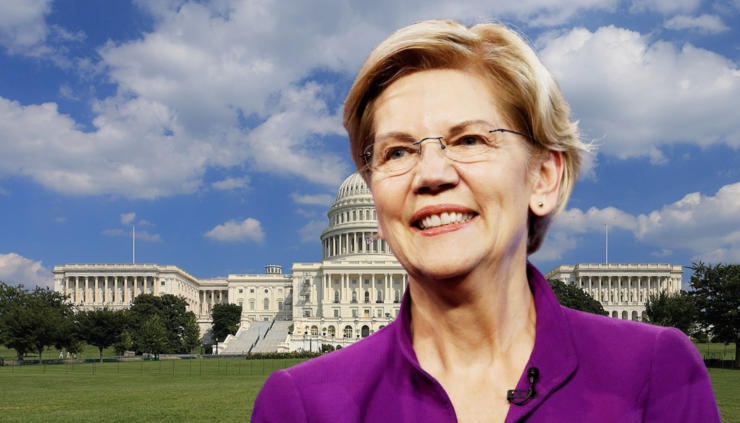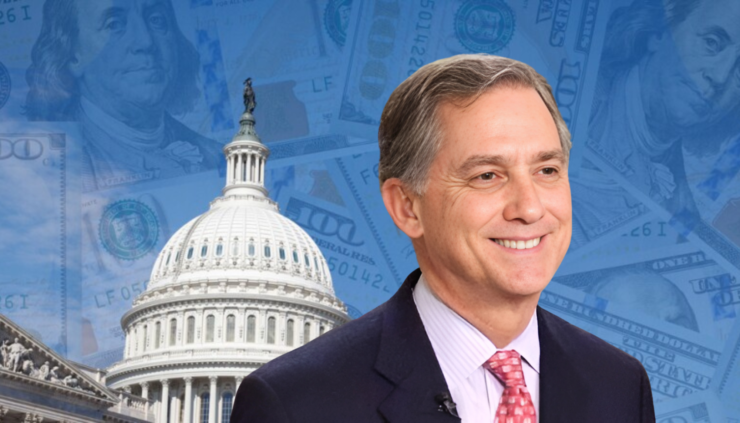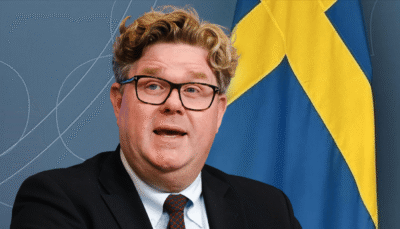House Financial Services Committee Chair French Hill (R-AR) acknowledged this week that President Donald Trump’s growing involvement in cryptocurrency is complicating congressional efforts to establish a federal regulatory framework for digital assets. Speaking to reporters on Monday, Hill specifically cited the president’s personal crypto ventures—including a Solana-based meme coin and the World Liberty Financial stablecoin initiative—as complicating factors in ongoing legislative negotiations.
“That engagement in the memecoin activity and in considering the formation of a stablecoin have made our work more complicated,” Hill said.
Hill’s comments reflect a rising unease on Capitol Hill over the intersection of Trump’s private business interests and his influence over national crypto policy. Since returning to office, the Trump family has significantly expanded its presence in the digital assets sector, launching multiple high-profile projects while federal agencies and lawmakers work to finalize industry-wide rules.
Trump Family’s Crypto Foray and Expanding Business Ties
In recent months, Trump-affiliated entities have introduced a decentralized finance platform (World Liberty Financial) on Ethereum, announced the upcoming launch of a dollar-pegged stablecoin called USD1, and become increasingly active in crypto infrastructure and media. These initiatives have emerged just as Congress is preparing to mark up major crypto legislation, prompting bipartisan concerns about potential conflicts of interest and political influence.
The Trump family’s ventures span multiple segments of the digital asset landscape. While meme coins—often driven by viral appeal—were recently classified by the U.S. Securities and Exchange Commission as “collectibles,” stablecoins are positioned as a more serious component of decentralized finance due to their 1:1 peg to fiat currency. The Trump-backed stablecoin USD1 is reportedly supported by U.S. Treasuries and liquid reserves, making it a potential competitor in a space under active federal review.
Beyond token issuance, the Trump family has extended its crypto reach through other channels. Truth Social’s media company recently partnered with Crypto.com to promote exchange-traded crypto investment products. Meanwhile, Eric Trump and Donald Trump Jr. announced the formation of a Bitcoin mining venture with Hut 8, positioning the family further into blockchain infrastructure.
The growing scale and visibility of these ventures have drawn attention within the Republican Party. According to sources familiar with internal committee discussions, some GOP lawmakers have raised concerns about the optics of Trump’s overlapping roles as business executive and policymaker, especially with the STABLE Act and a companion Senate bill approaching critical votes.
Legislation Faces Headwinds Amid Political Entanglements
If passed, these bills would establish the first federal framework for stablecoin issuance, custody, and compliance—paving the way for broader institutional adoption of blockchain technologies. Supporters argue that legal clarity could stimulate innovation and investment while curbing bad actors in a largely unregulated space. However, the political backdrop has grown increasingly complicated.

Democratic opposition to the legislation has intensified in light of Trump’s crypto activity. Last week, Senator Elizabeth Warren (D-MA) issued a sharp critique of the Trump-backed USD1 stablecoin, calling it a “grift” and directly linking it to the stablecoin bill’s advancement.
“Congress should step up and fix the current stablecoin bill moving through the Senate that will make it easier for Trump—and Elon Musk—to take control of your money,” Warren said in a public statement.
While the legislation has received bipartisan support in both chambers, the timing of Trump’s personal investments has become a flashpoint in the debate. Lawmakers are increasingly weighing whether the convergence of presidential business activity and federal crypto policymaking could erode public trust in the rulemaking process.
Balancing Innovation and Oversight
As Congress accelerates its push to regulate the digital assets market, the Trump family’s crypto ventures are casting a long shadow over the proceedings. What began as an effort to bring regulatory certainty to a maturing industry has now become a politically sensitive issue, where business ambitions and public policymaking appear increasingly intertwined.
While proponents of the stablecoin bills argue that a clear regulatory framework is urgently needed, critics caution that personal financial involvement from top elected officials—particularly the president—could complicate enforcement and challenge perceptions of fairness and impartiality in digital asset regulation.
Quick Facts:
- Rep. French Hill stated that President Trump’s crypto ventures have made it more difficult to finalize stablecoin legislation.
- Hill referenced Trump’s meme coin and World Liberty Financial’s USD1 stablecoin project.
- The Trump family has launched multiple digital asset initiatives, including DeFi platforms, stablecoins, and a Bitcoin mining operation.
- Lawmakers are increasingly concerned about potential conflicts of interest between Trump’s business activity and his role in shaping national crypto policy.





